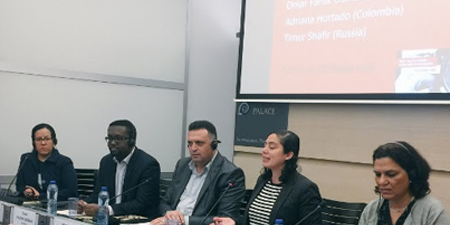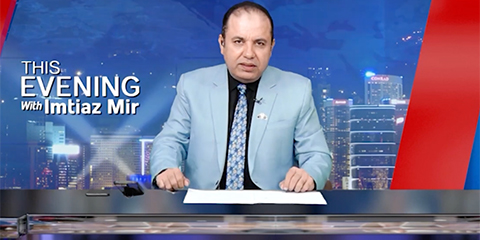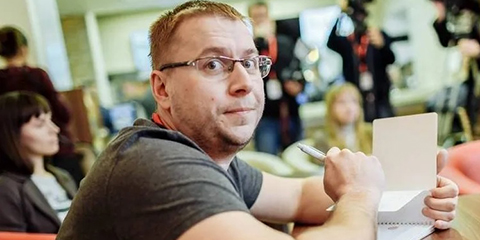
PFUJ calls for end to Impunity for Crimes Against Journalists
November 02, 2025: PFUJ urges Pakistan’s federal and provincial governments to end Impunity for Crimes Against Journalists and ensure their safety and press freedom.
JournalismPakistan.com | Published 8 years ago
Join our WhatsApp channel
BRUSSELS - A conference convened by the International Federation of Journalists (IFJ) on ending impunity for crimes targeting journalists and media workers has called for action to tackle the global crisis of impunity.
The conference “Turning the words into actions”, which took place at the IFJ headquarters in Brussels on November 7, recommended addressing current weaknesses in the international legal framework for greater media protection through the adoption of a new convention on the safety of journalists.
Delegates to the conference highlighted a series of existing weaknesses in the protection of journalists including the non-recognition of victim status to journalists, the limited efficiency of the general provisions of International Human Rights Law for media protection and the lack of recognition of their profession.
Organized one week after the third commemoration of the UN Day to end impunity for crimes against journalists, the conference highlighted the safety crisis in media and adopted the strategies to resolve it. It brought together members of the IFJ Executive Committee, United Nations, OSCE and ITUC senior representatives, legal experts, media practitioners as well as relatives of killed journalists.
Speakers addressed the safety of journalists and other media workers, including the on-going killings, kidnappings and threats which continue to be committed in total impunity, thus fueling further violence in countries such as Colombia, India, Palestine and Somalia.
The IFJ President, Philippe Leruth, underscored in his opening remarks the need for prevention of violence against journalists, noting that 15 of them had lost their lives since his election at the IFJ World Congress last June in Angers. He welcomed the statistics from UNESCO which show an increase in the responses from Member States on their reaction to killings of journalists and media workers but called for more accountability.
“Prevention means convicting killers of journalists,” he said.“ We welcome the fact that more governments respond the UNESCO’s inquiries on the matter but they now need to resolve more killing cases.”
Dr Carmen Draghici, a legal expert who reviewed the existing international legal framework on the protection of journalists, recommended a comprehensive codification of all provisions relevant to their protection with a view to addressing specific professional risks that journalists face in their work and its values to society. The new instrument, in the form of a binding convention or declaration, on the safety of journalist would also help national governments understand their obligations.
The conference also discussed the role of journalists and their organizations in addressing the issue of impunity. The Director of the UN Regional Information Center (UNRCI) for Western Europe Deborah Seward noted that the safety of crisis in media is high on the international policy agenda. She referred to the UN Day against impunity for crimes targeting journalists and the UN Action Plan on the safety of journalists and the issue of impunity which seeks to ensure the free flow of information. Ms Seward said that actions need to go beyond commemoration to achieve real change on the ground. To this end, journalists have to learn about their rights and how to hold their governments to their obligations.
Media organizations play an important role, including providing support to journalists who are victims of violence and their families, according to Mrs Fabienne Mercier Nérac, who was married to cameraman Frédéric Nérac killed in 2003 in Iraq. She told the conference that, while her husband’s body was never found, his employer supported the family to secure an inquest which determined the killing of Nérac and allowed the family to know the truth and bring closure on their loss.
The situation in a number of countries which forms part of the focus of the IFJ 2016 campaign against impunity for violence in journalism were discussed in detail, including India and Yemen together with other hot spots in the world such as Colombia and Somalia. Among key contributing factors to the prevailing impunity were the lack of a political will, especially in cases concerning less well-known journalists, as well as failing judicial systems.
The IFJ conference was supported by the International Trade Union Confederation (ITUC) and its Communications Director Tim Noonan spoke about their shared values with the IFJ, including freedom of expression, association and assembly which are the cornerstone of democracy.
“Now more than ever, with the escalation of violence in journalism which has claimed over 2500 colleagues’ lives in the last 25 years, journalists and their organizations have a major role in the fight against impunity for crimes against media workers,” added IFJ General Secretary Anthony Bellanger. “This conference has shown the avenues we can pursue to ensure accountability for those who kill and attack journalists. Time has come to turn words into action.” - IFJ media release

November 02, 2025: PFUJ urges Pakistan’s federal and provincial governments to end Impunity for Crimes Against Journalists and ensure their safety and press freedom.

November 02, 2025: Impunity for crimes against journalists deepens worldwide as Pakistan reports a 60 percent surge in attacks and weak enforcement of safety laws.

November 01, 2025: Pakistan Press Foundation reports 137 attacks on journalists in 2025, highlighting rising threats, legal harassment, and censorship on the International Day to End Impunity.

November 01, 2025: A viral Samaa TV clip featuring MNA Sher Afzal Marwat’s crude remarks and Talat Hussain’s laughter raises questions about the declining ethics of Pakistani television.

October 31, 2025: Police foiled a plot to kill DawnNewsTV journalist Tahir Naseer in Rawalpindi after arresting suspects hired for Rs200,000. Naseer says threats followed his reporting.

October 31, 2025: CPJ calls on Pakistan to bring Imtiaz Mir’s killers to justice after the journalist was allegedly murdered by a banned militant group in Karachi.

October 30, 2025: The PFUJ has condemned a fabricated drug case against journalist Matiullah Jan, calling it an attempt to silence him and urging authorities to quash the charges immediately.

October 30, 2025: NewsOne TV remains on air but faces mass layoffs and delayed salaries, exposing Pakistan’s worsening media crisis and financial instability.

November 02, 2025 Independent outlet All About Macau to halt print and online operations amid rising pressure, financial strain, and legal threats, sparking press freedom concerns in the city.

November 01, 2025 Belarus court jails journalist Siarhei Chabotska for extremism and defaming the president, highlighting Minsk’s ongoing crackdown on press freedom.

November 01, 2025 Mexican journalist Miguel Angel Beltran was found murdered in Durango. CPJ urges authorities to ensure justice amid rising violence against journalists in Mexico.

November 01, 2025 UNESCO survey finds one-third of media lawyers cannot effectively defend journalists due to threats, limited resources, and lack of specialization.

October 31, 2025 Radio Free Asia, a US government-funded broadcaster covering tightly controlled Asian media environments, has suspended all news operations after federal funding dried up.